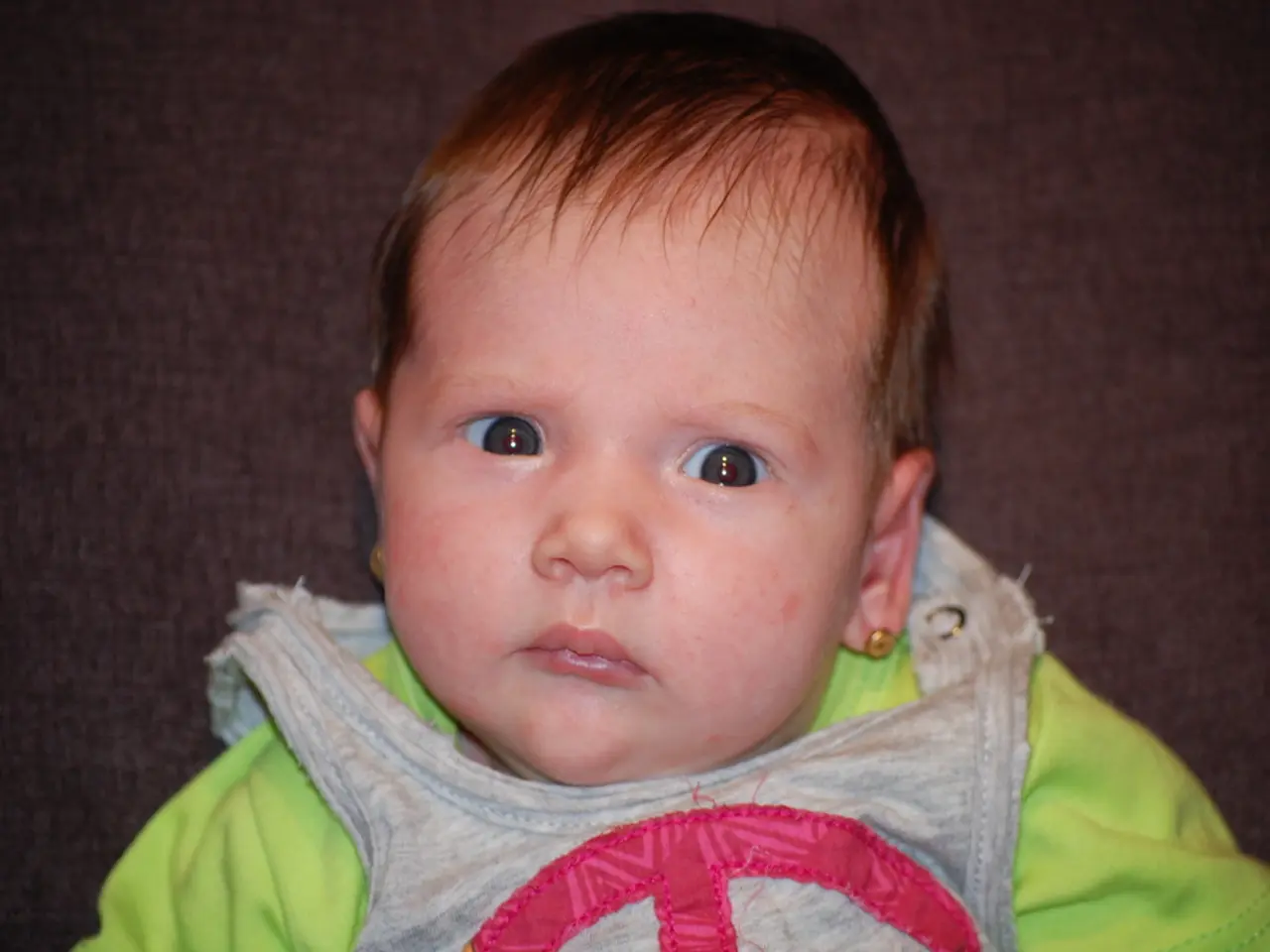Toddler Fever: Recognizing When Medical Intervention is Necessary
Febrile seizures, a type of seizure that occurs when a toddler has a fever, are relatively common among children under the age of 5. These seizures are usually triggered by a rapid rise in body temperature due to infections such as viral or bacterial illnesses.
Symptoms of Febrile Seizures
Common symptoms of febrile seizures in toddlers include sudden convulsions or shaking, loss of consciousness, uncontrollable shaking, eye rolling, stiff limbs, twitching, and jerking movements of the arms and legs. These seizures typically last less than 15 minutes without recurring within 24 hours.
Potential Causes and Risk Factors
The primary cause of febrile seizures is a rapid increase in body temperature due to infections. Other risk factors include a family history of febrile seizures and the child's age within the vulnerable range (6 months to 5 years).
When to Seek Urgent Medical Attention
If a toddler has a febrile seizure, especially if it is the first time, immediate medical attention is necessary for proper evaluation and management. Other situations requiring urgent medical care include:
- If the febrile seizure lasts longer than 5 minutes or is followed by multiple seizures within 24 hours or two seizures in 12 hours.
- If the seizure is accompanied by other concerning signs such as difficulty breathing, unresponsiveness after the seizure, persistent vomiting, or signs of serious infection like stiff neck or rash.
- If the fever is very high or does not respond to fever-reducing medication, or the child appears unusually lethargic or irritable.
Common Causes of a Toddler's Fever
Possible causes of a toddler's fever include illnesses due to viruses or bacteria, such as the common cold, urinary tract infections, ear infections, rubella, mumps, measles, scarlet fever, chickenpox, gastroenteritis, having a vaccination, sunburn, and dehydration.
Managing and Treating a Toddler's Fever
A fever alone is rarely harmful and typically does not exceed 105.8°F (41°C). However, if the toddler is uncomfortable, it is essential to provide relief. Parents and caregivers can help a toddler feel more comfortable by ensuring they drink plenty of water, putting cool, damp cloths on the foreheads, wrists, and calves, dressing them in loose, light clothes, and giving them medication like ibuprofen or paracetamol, but ensure the correct dose is given and speak with a doctor before doing so.
It is crucial to avoid rubbing a toddler down with alcohol, putting a toddler in a cold or ice bath, undressing the toddler, delaying seeking medical attention for a toddler who appears very ill, giving a toddler any medication not meant for a child, and giving aspirin to children as it can increase the chance of developing Reye's syndrome.
FDA Guidelines
The Food and Drug Administration (FDA) recommends contacting a doctor if a toddler experiences a fever of 102.2°F (39°C) or higher.
In summary, febrile seizures in toddlers are common and usually do not cause long-term health problems or epilepsy. However, immediate medical care is essential if seizures are prolonged, recurrent, or associated with concerning symptoms. Parents and caregivers should be aware of the symptoms, potential causes, and when to seek urgent medical attention for their toddlers.
- In some cases, a toddler's fever might be triggered by other unforeseen factors like having a vaccination or sunburn.
- Epilepsy is not typically a long-term consequence of febrile seizures in toddlers.
- A caregiver should be vigilant and contact a medical professional if a toddler experiences atopic dermatitis, a type of rash, along with a fever.
- It's crucial for a caregiver to consult a pediatrician if their toddler has a fever and exhibits any signs related to Crohn's disease or ulcerative colitis, inflammatory bowel conditions.
- If a toddler is diagnosed with HIV, the caregiver must work closely with their healthcare team to manage the condition and potential seizures related to certain HIV medications.
- Depression can exacerbate seizures in individuals with epilepsy, making it vital for the overall mental health of the caregiver and the child to seek support from mental-health professionals if needed.
- Predictive science in health-and-wellness can help develop new treatments and strategies for managing chronic diseases, like Non-Small Cell Lung Cancer (NSCLC) or hepatitis, in children.
- Aq, a chemical substance, might be used in treating certain skin conditions, like pediatric dermatitis, to alleviate itching and support the healing process.
- Pfizer, a pharmaceutical company, conducts extensive research to develop new treatments for various diseases, including epilepsy and Crohn's disease.
- Epilepsy seizures can sometimes be blocked or lessened with prescription medication, but it's important to consult a healthcare professional for guidance on the appropriate dosage and treatment plan.
- The health-and-wellness of both the toddler and caregiver can benefit from maintaining open lines of communication with healthcare professionals, seeking timely medical attention as needed, and adhering to recommended guidelines for preventative care.




